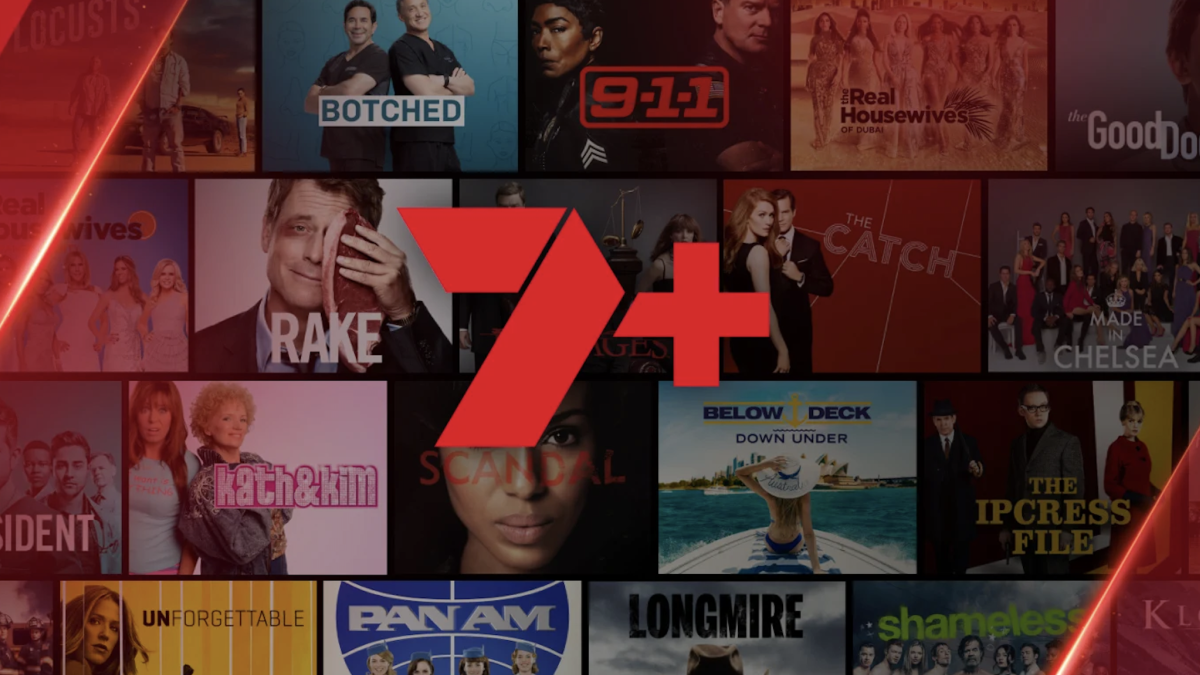The Seven Network (commonly known as Channel 7 or simply Seven) is Australia’s #1 commercial free-to-air television network. The Seven Network is part of Seven West Media, one of Australia’s most prominent media companies, and is home to Australia’s most loved news, sports and entertainment programming. Its iconic brands include 7NEWS and Sunrise, Big Brother, SAS Australia, Farmer Wants A Wife, The Voice, Dancing With The Stars: All-Stars, Home and Away and Better Homes and Gardens. Headquartered in Sydney, the Seven Network is also the broadcast partner of the AFL, Cricket Australia, Supercars and the Olympics.
Challenge: Scaling to stream billions of minutes of live sporting events
The Seven Network held the rights to televise and stream live events such as the AFL Grand Final, the 2020 Tokyo Olympics (held in 2021 due to the pandemic), and the 2022 Winter Olympics.
The Olympic Games is one of the world’s biggest events when it comes to TV audiences and live streaming, and Seven was expecting unprecedented demand.
With demand for the Tokyo 2020 Olympics and the Beijing 2022 Winter Olympics - plus the AFL Grand Final - higher than ever, Seven had to raise the bar and implement better observability and visibility into its vast and complex architecture.
"Due to the nature of streaming large 'viral', live sporting events, we needed to have our fingers on the pulse of all our scalable infrastructure and components, such as serverless, containers and IaaS, so we could scale according to service/viewing demands and catch any issues before the viewer experience was impacted," explains Scott Favelle, Technology Director at Seven West Media.
Seven had previously relied on a series of homegrown and stitched-together solutions using a range of disparate tools. In the lead up to the AFL Grand Final and the Tokyo Games, the network had also started going down the proof of value path with another observability tool. But its single-agent was data-heavy, with fine-grain sampling, which can crash services, and the inability to scale - an absolute necessity during live sporting events.
The proof was in the pudding: after two weeks of exploring, Seven realised the tool wasn’t the right fit for monitoring its scalable streaming services.
Solution: A-grade observability
Seven swiftly rolled out New Relic ahead of a number of large-scale events, including the 2021 AFL Grand Final and the Tokyo Olympics. Active involvement from New Relic via a dedicated Solutions Consultant during the proof of concept process was also a major differentiator, providing Seven with the necessary reassurances about its ability to deliver.
"New Relic is much more effective at capturing rich and valuable data at the application level. Its other major value proposition is that its all in one observability has a strong front-end, lean agents and the ability to monitor lightweight container services," Scott says.
Seven is very focused on correlating AWS metrics to front and backend app performance through New Relic Application Performance Monitoring (APM) and New Relic browser monitoring, as well as Lambda instrumentation, so they are able to identify issues before they become user impacting.
During live sporting events, teams at Seven monitor the correlations between AWS and app performance to determine if their infrastructure can handle the large volume of users. This has resulted in their ability to fail over streaming feeds to fresh infrastructure that could handle excessive load or mitigate clusters that were having issues in real-time.
failovers since partnering with New Relic
uptime during peak streaming periods
streaming minutes recorded during the 2020 Olympic Games
"Observability is actually everything for us. Because we put all our effort into getting great content, but none of that actually matters if the product doesn’t work. Without that kind of visibility, we don’t know where the platform pain points are and we can't do big events. New Relic gives us one platform that we can look at and get a complete picture. It’s absolutely crucial"
Impact: A record-breaking win for live streaming
2021 and 2022 were record years for Seven’s live streaming capability, with the AFL Grand Final having 32.6 million streaming minutes, the Tokyo Games recording 4.7 billion streaming minutes through its 7plus streaming platform and was Australia’s largest ever streaming event, and the 2022 Winter Olympics delivered 376 million minutes of streaming across 35 channels.
From a user experience and technical point of view, Seven said that the streaming they’ve delivered thanks to New Relic has been "flawless". The most important metrics were around ensuring uptime, which has consistently remained at around 100%.
"Thanks to New Relic we managed to get our observability practice up and running in a short period of time, and quickly hooked up to our backend systems. This has allowed us to make it through an intense few years of live streaming events pretty well. Sporting events are intense at the best of times, but we were able to go from a standing start to operating with something that was adding a lot of value in a short period of time," Scott says.
Seven is now able to perform more accurate self-healing practices and create scripts to automate failovers; as well as "pure-path" type tracing to understand the customer journey. Since going live with New Relic, Seven has reported no failovers.
Seven envisions New Relic as being at the heart of an observability strategy that is focused on a single source of truth for telemetry data, highly automated with AI and alerting, offering end-to-end visibility, particularly at the application layer, and self-healing practices. New Relic dashboards have also made reporting much easier, with snapshots provided to senior executives.
"Observability is actually everything for us. Because we put all our effort into getting great content, but none of that actually matters if the product doesn’t work. Without that kind of visibility, we don’t know where the platform pain points are and we can't do big events. New Relic gives us one platform that we can look at and get a complete picture. It’s absolutely crucial,” Scott says.



